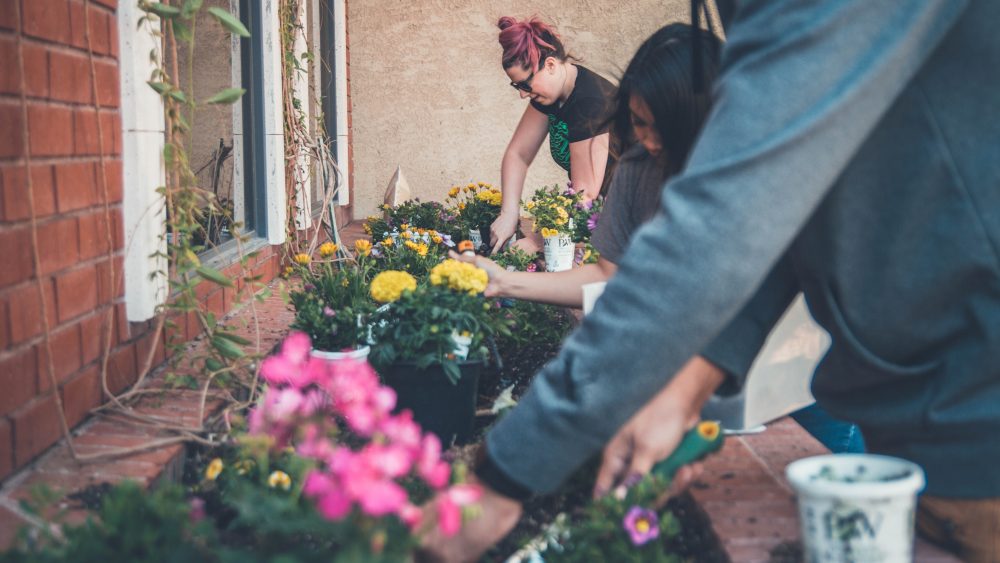If gardening is good for the body, mind and planet how can we do more of it and get others to value it too? At the end of National Gardening Week Katie Tiplady-Startin celebrates the wellbeing rewards of time spent in the garden.
In a 24 hour society, with responsibilities at every turn, it can be incredibly hard to battle past the to-do lists towards prioritising our wellbeing. And even if we do commit to it, what works in terms of self-care? You could read 100 books or magazines, listen to podcasts, chat to friends – and the only point of agreement you will find is that there is not one solution that works for everyone.
Every individual finds happiness and contentment in their own way. But a common thread across vastly diverse cultural groups and societies is that the garden or being in nature is a ‘happy place’ for many. Like reading and swimming, gardening is still one of the most popular hobbies in the UK despite advances in technology and much more choice in leisure activities. Why has gardening, something often associated with retired people, become more popular among all age groups in recent years and what keeps us out there, despite the UK’s turbulent weather?
The evidence that nature is good for us has been around for many years. Many community projects use gardening and in particular food growing, as supportive activities for their service users. Allotment use is on the rise and not least by small organisations assisting with mental health advice. A study by the University of Westminster and Essex found that just half an hour on the allotment can significantly improve mental health.
But now it seems, the reason for some of these benefits can be found in the soil itself. A study published in Neuroscience in March 2007 began with the hypothesis that there was a connection between asthma and allergies and the trend towards living clean. But what they found was ‘that treatment with a specific soil bacterium, Mycobacterium vaccae, may be able to alleviate depression’.
Gardening makes you happier! The science says so. Okay, maybe it isn’t as clear cut as that but it does go a long way to explain why, as a nation, we take such joy in the self soothing simplicity of a Saturday afternoon planting, weeding, potting and repotting in our gardens, back yards or allotments.
CTP has been supporting individuals and community groups to measure the wellbeing benefits of their work via the Happiness Pulse for many years. Projects can measure wellbeing before and after activities delivered in green spaces including gardening – allowing them to provide clear evidence of the benefits of their work and encourage more of us to spend time getting grubby fingers in the mud.
- To find out more about how CTP can help support individuals or groups to measure their wellbeing get in touch at hello@centreforthrivingplaces.org
- Read more about the Happiness Pulse here.
Photo by Kenny Eliason on Unsplash



Comments are closed.